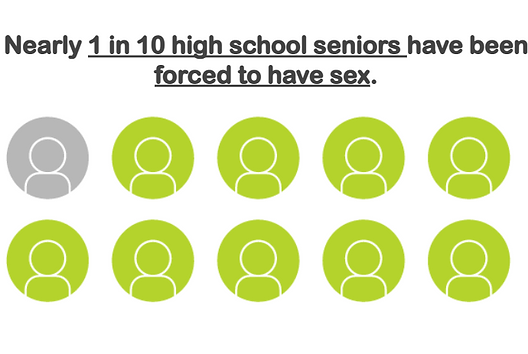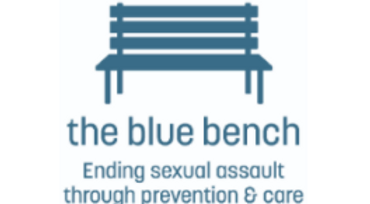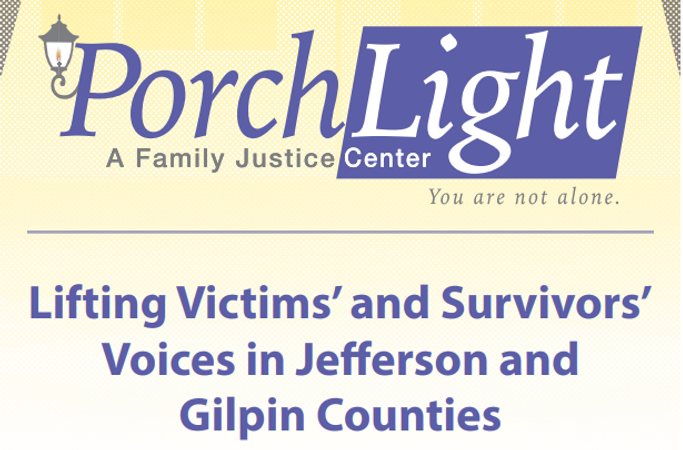Twelve Talks to
Have With Teens
Sex & Consent
Jefferson County teens report that while adults discuss the physical aspects of sex with them, adults aren’t providing needed guidance to teens about creating healthy relationships, sexual consent, use of alcohol as a “date rape” drug, sending nude photos and making sexual comments about others.
- Jefferson County youth report that adults and teachers cover the physical aspects of sex, but often seem to feel uncomfortable talking about the emotional and relationship dynamics that are part of sexual interactions. The reality is that talking about sexual relationships and consent with a teen can be uncomfortable. Talk about it even if it’s uncomfortable. Don’t count on sex ed at school to cover all the information your teen needs to know or has questions about.
- Still, protection from unwanted pregnancy and sexually transmitted infections should be part of any conversation with a teen. Teens can get access to free and low-cost condoms or birth control at Jefferson County Public Health.
- Your teen might not know that the majority of teens are NOT having sex. In fact, the percentage of U.S. high school students who had ever had sex decreased from 54 percent in 1992 to 38 percent in 2019.
- Alcohol is a common “date rape” drug. Jefferson County youth report that sexual assaults in Jefferson County, most of which occur in people’s homes or cars, nearly always involve alcohol– just large amounts of alcohol, without other drugs added to a drink. The alcohol used is either provided by, or stolen from, an adult they know. All Jefferson County youth deserve to be taught that combining sex with alcohol or drugs is not acceptable.
- Youth need to hear from adults that harassment includes any kind of unwanted touching, making comments about other people’s bodies, talking about others in a sexual way and social media posts that include anything sexual about another person.
- Asking for, or sending, nude photos is an important topic to discuss with young people. Taking a naked “selfie” and sharing it with one friend may seem harmless; however, these photos are often shared with friends and friends of friends, or may be posted on social media. The teen in the photo has no control over who sees the photo or where it may end up. In addition to being illegal in Colorado, possessing or exchanging nude photos can haunt them later in life by resurfacing during a college or employment application process.
Jefferson County High School Age Youth

Healthy Kids Colorado Survey, 2019
How is offering a cup of tea similar to consenting to sex?? Watch this video to find out! (2:49)


Conversation Starters
-
Read up to get ready:
- The Consent Conversation: What Is Consent, and How Do You Discuss It with Kids? has great information, including how to start the conversation with children, tweens and teens.
- Mayo Clinic’s article on sex education: Talking to your Teen about Sex includes suggestions for starting the conversation and addressing tough topics.
- Our Children: Questions and Answers for Families of Lesbian, Gay, Bisexual, Transgender, Gender-expansive and queer youth and adults with suggestions for talking to your gay, lesbian, bisexual, queer, gender-nonconforming or not-sure teenager.
- Avoid having the conversation stop before it starts by asking open ended questions that cannot be answered “yes,” “no,” or with a single word, such as the ones listed at the top of this page.
-
Show or send them a video, such as Consent is like a Cup of Tea or Cycling Through Consent.
-
When a news story, meme, movie, TV program or music video raises issues about sex or consent, use it as an opportunity to start a discussion.
Ask Yourself
- Do you bring up this topic often enough? The “sex talk” is not just one talk. It’s a series of talks that take place multiple times and cover many topics including boundaries, pressure to have sex, consent, birth control, protection from sexually transmitted diseases — and also answer any questions that come up.
- Don’t avoid talking about sex and consent just because you feel strongly that your teen should not have sex. You may decide to preface your comments with, “I hope you don’t have sex, but if you do…”
- Include information about asking for, sending or passing along nude photographs. In addition to family boundaries about sexting, encourage your teen to understand what is and isn’t legal in Colorado.
- Have you discussed consent with your teen? Talk specifically and directly about what consent is — explicit, verbal permission to initiate and continue sexual contact. Also talk about what is not consent, including:
- Implied permission or previous permission
- Silence
- Pressuring someone or tricking them
- If either party is intoxicated
Have you told them directly that combining sex — of any type — with alcohol or other drugs is not acceptable? They should not have sex with someone who has been drinking or taking drugs, and they need to stop others from hooking up with someone who is intoxicated. No one can give consent if they have taken, or may have taken, any type of alcohol or drugs.


Rules & Boundaries
- Let your youth know what your family, team or organization rules are about touching another person’s private areas without permission, making comments about their body or sexuality, sending or requesting nude pictures and sexual activity when intoxicated.
- Teach your teen how to access various types of physical and behavioral medical care, including access to birth control and other sexual health services, such as treatment for sexually transmitted diseases.
- Sexual assault often occurs at house parties when teens have been drinking. If you go out of town, take these steps to prevent a “house party” from occurring at your home.
- Know where your teen is and who they are with when they are not at home.
Equity & Inclusion
-
Teens who experience relationship violence face unique barriers such as limited access to resources, attending the same school as the abuser, having limited access to transportation or less control over their schedules. A trusted adult may not be able to remove all of these barriers, but they can help the teen create a safety plan.
-
Teens who are lesbian, gay, bisexual or asexual are far more likely to face bullying, dissemination and inequities. In Jefferson County, among youth who been in a relationship in the previous year, youth who are gay or lesbian are 3 times more likely to have been physically hurt by someone they have dated.
-
Too many Jefferson County High School students reported having been raped according to the 2019 Healthy Kids Colorado Survey, and the number is higher among girls and LGBT+ students:
-
8.7% of all females and 3.3.% of males have been forced to have sex when they didn’t want to.
- 15% of bisexual students and 16% of gay & lesbian students have been forced to have sex when they didn’t want to.
-

Taking Action in your Community
Reduction of risk factors, and improvements in protective factors, can happen on multiple levels– within an individual, among friends and family, by adjusting systems in places like schools or businesses, and on the policy level for towns, counties or states. When improvements happen on all levels, our teens are most likely to thrive. Here are some policy and systems you and/or your teens might be able to influence:
- All schools are required to have Title IX Policies and Procedures policies in place to protect those who are discriminated against on the basis of sex, including those who have been sexually assaulted, abused or harassed, including by someone they attend school with.
- Schools are required to have these rules publicly available. Ask your school about where they have their Title IX policies posted. Find out more: https://www.knowyourix.org/ .
- Ask the school about how they support these policies and sexual and relationship violence is addressed (particularly when victims and perpetrators are in the same school).
-
Health education students receive (including information about comprehensive human sexuality, healthy relationships and consent) varies by school.
- Ask your school how they are implementing health education for all students. Ask if the school knows about the district’s Health Education Policy and related resources. Ask/promote your teen to take a high school health education elective.
- g non-academic data and information (e.g., health information, climate survey data, etc.) to guide school improvement efforts and plans.
- Jefferson County Youth Town Hall data shows that teens are too often sexually assaulted in homes where drinking or other drug use is ignored (or even permitted). Ask your city councilor and county commissioners what they are doing to combat “house parties” and penalize people who host underage drinking parties in our community. Find out what are teens propose by watching this video.
* Healthy Kids Colorado Survey 2019, Jefferson County data; **Jefferson County CTC Youth Town Hall data 2019, 2020 & 2021.
This resource is maintained with funding from a Coalitions Organizing For Prevention grant from the Colorado Department of Public Health and Environment and a Drug Free Communities Grant from the Centers for Disease Control. The views, policies and opinions expressed are those of the authors and do not necessarily reflect those of the grant providers.






